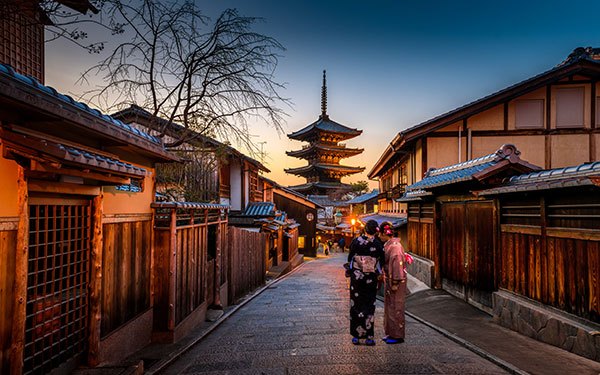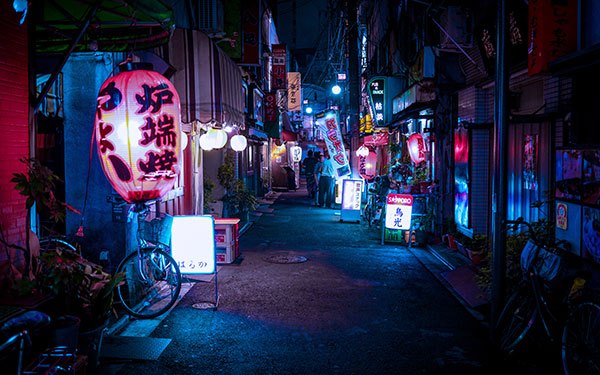Are you considering a move to Japan from the UK?
Love sushi? Japan’s most famous cuisine is just one of the wonderful things about the Land of the Rising Sun.
A magical blend of ancient and modern, Japan is full of contradictions that somehow blend together to create something wonderful –from mystical temples and mysterious geisha to futuristic skyscrapers and far out manga.
The Japanese culture is totally unique, and many expats just can’t resist the temptations of a life in Japan where life is never dull.
Here’s our guide to everything you need to know if you’re a Brit thinking about relocation to this incredible country.
Contents
Japan Visa Requirements for Brits
Visiting
It’s good news if you’re a UK citizen and you’re only wanting to stay in Japan for a few months.
Brits are allowed to enter Japan for up to 90 days without applying for a tourist visa (your passport gets a visa stamp automatically on entry to the country) but on rare occasions you may be asked to provide proof of onward travel at passport control.
After the initial 90 days is up, it is possible to apply for an extension visa for an additional 90 days, but this will need to be applied for before the original tourist visa runs out.
Working
There are two types of work visa in Japan: the Working Holiday Visa, and the regular work visa.
Japan’s Working Holiday Scheme allows a limited number of British citizens to enter Japan for up to a year on a holiday basis, and to take on work during that time to supplement their travel funds.
There are 1000 of these visas available each year, but you must be a UK resident between the ages of 18 and 30 in order to qualify.
Japan’s ordinary work visa is a little more complicated as there are different visas for different professions.
Work visas must be applied for at the Japanese embassy in the UK before entering Japan, and you will need to provide a certificate of eligibility from your Japanese employer (i.e. you need to already have a job lined up) as part of the application process.
Once your work visa is issued you have 3 months to enter the country, after which you have 14 days to register as a temporary resident for your visa to remain valid.
Permanent Residency
At the moment if you are already registered as resident in Japan and have lived and worked there for more than ten years you can apply for permanent residency, although if you are registered with a Highly Skilled Professional work visa this is shortened to just three years.
Likewise, if you are married to a Japanese national you can also apply for permanent residency after three years.
However for some, becoming a permanent resident in Japan is about to get a whole lot easier. As of March 2019 applicants with multiple degrees who earn a high salary will only need one year before they can apply to become residents.
When applying for permanent residency your earnings will be taken into account and may affect the success of your application.
You will be required to provide evidence that you have enough means of financial support, as well as meeting the minimum earnings threshold which varies depending on your situation.
You will also need to prove that you have been paying your taxes, and provide a personal reference from a guarantor — either a Japanese national or a permanent resident.
Way of Life in Japan
Lifestyle
Japanese people work hard and play hard.

The majority of the people live in the vibrant but densely populated cities where business is king and working overtime is expected.
Office workers often don’t make it home at night, instead grabbing a few hours sleep in one of the many tiny hotel sleeping capsules dotted around the cities or in their cars or even just napping in public places.
But although the Japanese work ethic may seem extreme, this is a people who also love to eat out and party, and fabulous restaurants and karaoke bars abound.
Japanese culture is also strongly influenced by western culture, so you’ll see plenty of familiar brands and products around.
Deeply rooted traditional values have created a nation of people who are achingly polite and helpful.
For westerners this can sometimes lead to making mistakes when it comes to social interaction. For example, greetings are accompanied by a bow, of which there are 3 separate kinds for different occasions, and you should dress neatly and conservatively if you don’t want to offend.
Japanese people can be very hard to read, with their actions not necessarily reflecting their true thoughts and feelings.
Older generations can often be shy and reserved around foreigners, but the younger crowd are generally much more accepting and often great fun to be around.
Nightlife in Japan can be a lot of fun — but expect to sing more than dance as dancing is banned in the majority of inner city nightclubs.
If you don’t speak any Japanese, communication can be difficult as English is not widely spoken, so it’s best to learn as much of the lingo as you can.
Many Japanese people live in small apartments and eat and sleep on tatami mats on the floor, although accommodations in the suburbs and rural areas are more spacious.
Overall though the standard of living in Japan is generally high and good health care and educational facilities are in place. It is also one of the safest countries in the world.
Food is an important part of Japanese culture.
It’s healthy and varied — as well as delicious.
Ramen and sushi are some of the most famous food types in the west, but there is so much more than that on offer — if you want to sample a range of different dishes, try the ultimate in Japanese fine dining, kaiseki.
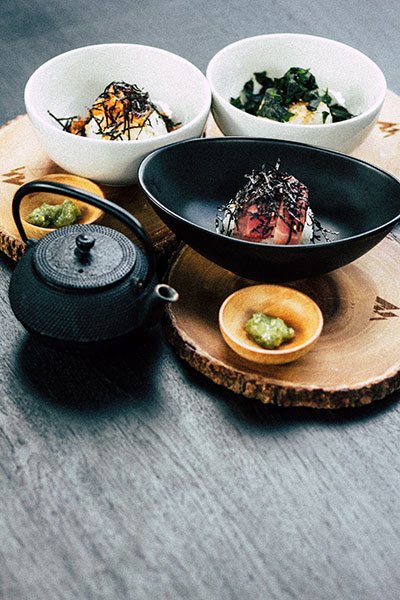
This is a multi course tasting menu comprised of small, seasonally themed dishes crafted with the utmost precision and attention to detail in various different ways.
If you’re confused by your Japanese menu, many restaurants have realistic plastic models of their food on display so you can work out what it is that you’re ordering in advance.
The Japanese countryside is breathtakingly beautiful, and offers plenty to see and lots of outdoor pursuits to enjoy.
However for some, living in rural areas can be tougher than the cities, as English is rarely spoken and there are even fewer foreigners, which can lead to a sense of isolation.
Living in Japan as an expat may not be easy at times, but it can reap huge benefits and offer unique experiences that can’t be found in any other country.
Getting Around
Japan is a long, thin peninsula of 4 main islands stretching 1800 miles from one end to the other, and possesses an excellent transport infrastructure for getting around.
Train travel is the quickest and most reliable and efficient way to travel the country, with hi-tech trains travelling to most destinations including rural villages.
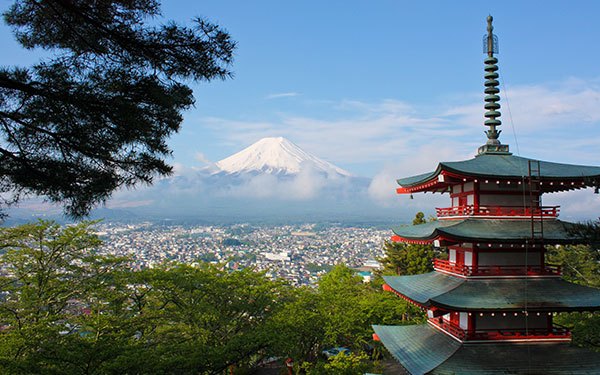
Japan Railways (JR) is the main train company, with additional private rail networks offering extra routes in and around the larger cities.
JR operates the 200 mile an hour bullet train which services all 4 islands.
Although travelling by train can be expensive, there are some good rail passes offering decent deals to cut down on costs when travelling.
Cities operate punctual and effective underground systems, with station names marked in English.
Bus services are also well run, and are an inexpensive but much slower alternative to trains when covering longer journeys and also to reach those areas not served by rail, including more remote areas and Japan’s many islands.
If you’re travelling to Okinawa, there is no real rail system, so the best way to get around is either by bus or by renting a car. In the cities most people rely on the underground railway instead of taking the bus, with the exception of Kyoto. Some smaller cities have tram lines which are easy to use and often issue unlimited travel day tickets.
Taxis can be found all over Japan and Tokyo might just win the prize for having the coolest looking taxis around. However if you’re in a rural area you may have to phone for a cab rather than hailing it on the street – otherwise taxis can also be found at taxi ranks around stations and airports. All Japanese cabs are metered, but drivers rarely speak much English so it’s best to have the address of your destination written down in Japanese to avoid any confusion.
Driving in Japan
While driving around big cities probably isn’t the best plan due to heavy congestion, having a car is a fantastic way to explore areas more off the beaten track.
As with most things in Japan the roads are excellent, but using motorways often incurs heavy tolls which can add to the cost of your trip.
Having said that, smaller roads are free and fuel is relatively affordable, so renting a car can be a good option for getting around — particularly if you’re travelling in a group to spread the cost.
Just as in the UK cars in Japan drive on the left side of the road, and renting a car is straightforward as long as you have an international driving license in addition to your UK license.
Weather in Japan
Spring in Japan is from March to May, and it is during this time that the cherry blossoms are in bloom and there are lots of outdoor festivals and picnics.
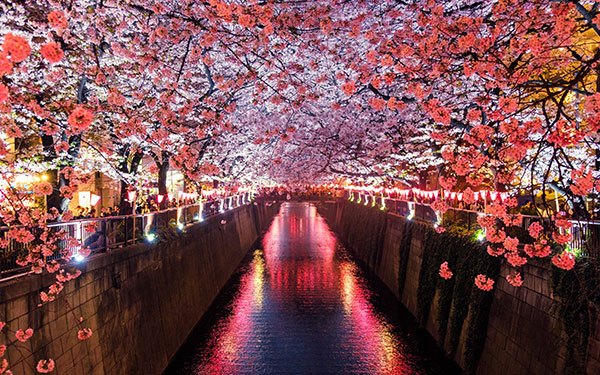
This, coupled with warm weather and little rainfall, is why it is one of the most popular times to visit.
The autumn months from September to November brings a glorious display of colourful leaves in the many beautiful parks, gardens, and forests. Temperatures start to drop a little, being similar to spring, but remain pleasant, and there are many outdoor sporting and cultural events which take place making this another favourite time to visit.
From June to August things heat up and the air becomes much more humid, with temperatures soaring way above 30°C. It also signals around 4 weeks of heavy rainfall and even occasional typhoons.
Japan’s winter from October through to February sees a severe drop in temperature, with snowfall in the north — particularly on the island of Hokkaido.
Elsewhere things get chilly, but remain sunny and dry. Southern Japan enjoys a milder year round climate than the rest of the country.
It’s also worth noting that Japan is prone to earthquakes, with the last major earthquake being in 2011 which resulted in the Fukushima Disaster which caused a devastating tsunami on Japan’s east coast — however earthquakes of this scale are rare, with most being harmless.
Cost of Living in Japan
Japan is known as being an expensive place to live, but it doesn’t have to be.
Big cities will always cost more than suburban or rural areas, and if you’re savvy you can keep your outgoings to a minimum.
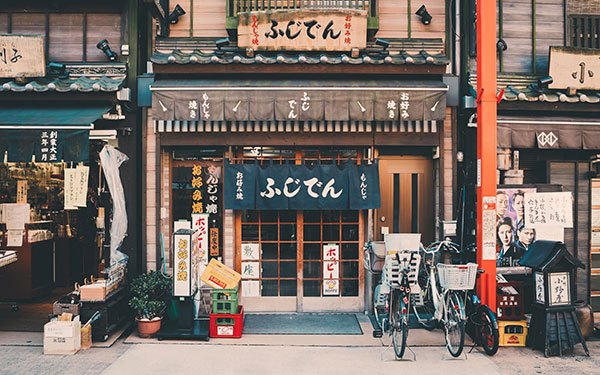
If you’re working in Japan you can also most likely be earning a good wage which can offset your living costs.
Read on to find out more about what you can expect to pay as a British expat living in Japan…
Lifestyle
Supermarkets are excellent in Japan, but some produce such as fresh fruit and vegetables or imported goods can be expensive.
A good tip is to wait until just before the grocery shops close as prices are reduced for unsold goods making it possible to get some good bargains.
In big cities like Tokyo, eating out can be cheaper than cooking at home and it’s possible to find good deals for dining in restaurants and entertainment such as going to the cinema, karaoke or the theatre.
Alternatively, there are plenty of fast food eateries and food courts selling cheap but tasty dishes such as ramen. Alcohol including beer and wine are more expensive than in the UK.
Utilities including internet, TV, and electricity are also pricey, with the average cost for utilities for one person being just under 10,000 yen (£75) a month.
Inner city travel on the underground or bus systems is affordable. Clothes, electrical and household goods can be easily bought for prices similar to those in the UK.
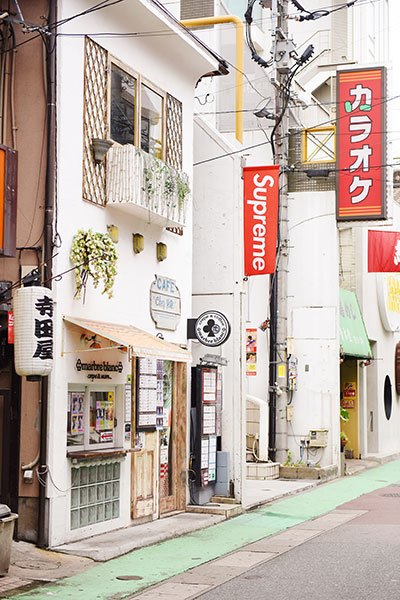
Rent
Accommodation is probably the biggest expense for expats living in Japan, although rental costs are often allowed for as part of employment packages by Japanese employers.
There are a wide array of rental properties to suit all budgets, but prices vary wildly depending on location.
As you may imagine, Tokyo is the most expensive place to live, with rental costs being similar to those of London.
Take a look at this video for more information:
Outside of Tokyo and other major cities the nationwide average monthly rent excluding bills for a single room 20 to 40 square metre apartment is between 50,000 and 70,000 yen, which is around £360 to £500.
Living outside the main cities is far more affordable if you can cope with the daily commute.
Healthcare
As long as you are staying in Japan with a resident or work visa, you are entitled to public healthcare.
The Japanese healthcare system is excellent, and depending on your situation you will either be covered by Social Health Insurance (if you are employed by a Japanese employer who offers health insurance as part of the package) or National Health Insurance.
If you are able to benefit from social health insurance, your employer will pay half of your public healthcare contributions for you, whilst the remaining half will be deducted from your wages.
The amount you pay each month will depend on how much your earn. In the case of national health insurance, you will pay a contribution based on your current situation, age, and previous year’s income.
Both these schemes cover up to 70% of medical costs, but you are only required to sign up for these types of insurance if you have been staying in Japan for more than 1 year.
Many expats choose to sign up for private healthcare insurance to cover the 30% of medical costs not covered by public insurance.
Schooling
When it comes to schooling, there are a few different options available to expats with children.
The standard of education in Japan is extremely high, and if you are intending to stay in the country for a very long period of time, you may want to consider enrolling your child into a Japanese public or private school.
Lessons are primarily taught in Japanese, but English language is also on the curriculum.
Japanese public primary and secondary schools are free, but there are admission fees for pre-school and higher education.
Private schools in Japan are highly prestigious, and as such demand reasonably high yearly fees, but not nearly as high as international schools which can cost anywhere between 1,500,000 to 2,500,000 yen per school year (roughly £11,000 to £18,000).
That said, international schools offer a wide curriculum taught in English, are multicultural, and offer an extremely high standard of education.
Popular Areas for Brits
Tokyo
The hub for expats from all around the globe, Tokyo is the ultimate modern metropolis.
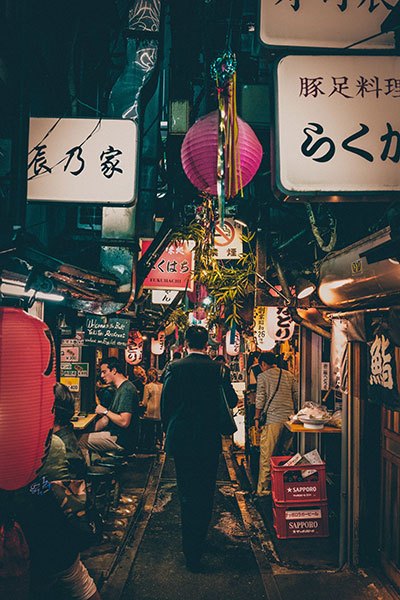
Japan’s capital city bombards you with life, sounds, smells, and culture.
Diverse neighbourhoods offer myriad delights, from traditional Japanese theatre, shopping in glitzy malls or dining in world class restaurants, to mysterious lantern lit alleyways, manga museums, colourful markets, and quirky cocktail bars — this city never stops giving.
Osaka
Steeped in tradition, energetic and often overlooked, Osaka is notorious for its excellent cuisine and drinking culture.
Laid back and friendly — and noticeably cheaper than Tokyo — Osaka mixes its rich cultural heritage with a host of contemporary delights including museums, galleries, theme parks, and fabulously fun nightlife.
Yokohama
Although it’s just a short hop on the bullet train from Tokyo, the seaside city of Yokohama has a totally different vibe.
Its bohemian atmosphere, cutting edge arts scene, craft breweries and bars, leafy gardens and parks, lively seafront, and excellent restaurants are just some of the reasons why this city is so popular with expats.
Kyoto
Kyoto epitomises what comes to mind when most people think of Japan.
Quintessential wooden teahouses, mysterious temples, bewitching Geisha, and stunning gardens are all to be found here, alongside myriad other attractions both ancient and modern in this, Japan’s cultural capital.
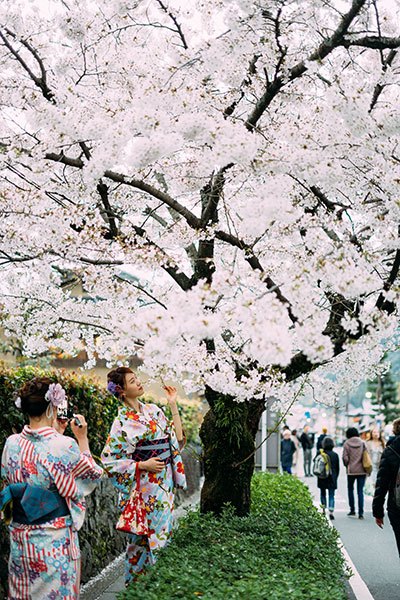
Fukuoka
Low key yet endlessly interesting, Fukuoka spreads out from the sandy shores of stunning Hakata Bay in a glittering maze of chic bars and boutiques, shopping malls, and incredible restaurants.
But this port city is also rich in history, and there are also an abundance of historical sites, museums, temples, and gardens to explore.
Sapporo
Surrounded by spectacular mountain scenery, Sapporo is the capital of Hokkaido island.
In winter the snowy peaks make for some excellent skiing, and in the warmer months the city comes alive as locals and tourists alike make the most of its many festivals, flourishing food scene, lush parks, and vibrant nightlife.
Jobs in Japan for British Expats
Jobs for expats in Japan usually fall into two distinctly different categories — unskilled menial labour, or highly skilled and specialised work.
Teaching is one of the most high demand areas — particularly English language teachers, which is good news for qualified Brits.
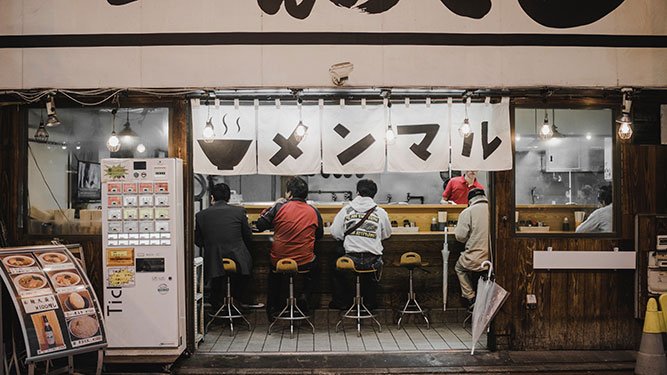
There are also numerous big international corporations working out of the major cities who are looking for skilled employees in specific fields, notably banking and finance, insurance, telecommunications, engineering, and environmental or medical technology.
Japanese employers expect the very best, so applicants for prospective jobs need to prove that they have the right level of skills, qualifications and experience for the role.
Speaking Japanese will naturally give you an edge over other individuals.
Unskilled work tends to be within the tourist industry or factory work, and is badly paid.
Are you considering a move to Japan from the UK?

